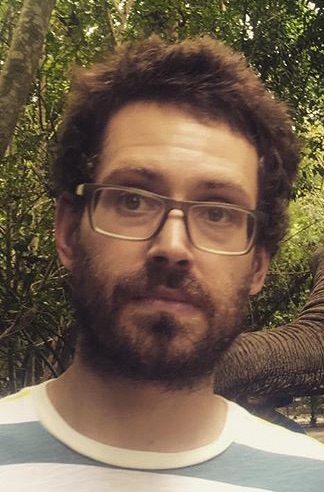Acts and Intermissions
A person is transformed into an icon by a kind of violent, flattening rupture. Emma Goldman has been made into such an icon many times over. During her lifetime, it was as “the most dangerous woman in America,” posthumously as perhaps the most famous anarchist in Anglophone history — for most, however, as the name attached to a likely apocryphal quotation. Onscreen, she has been the subject of stodgy PBS documentary,and a bit player in a handful of others She was portrayed most famously in Warren Beatty’s Reds, as a kind of earthy (and fully Americanized) matron.
Following the arc of Goldman’s life over the course of the 32 years she spent in the United States, Abigail Child’s Acts and Intermissions restores Goldman her complexity, though not as a fully-formed and unitary subject of biography or intellectual history. As an artist and writer, Child has worked seriously across a range of media. In all of them, her principal form has been montage, developing, as Tom Gunning writes, “a system founded not on coherence, but on breakdown, not on continuity, but interruption.” Here she subjects Goldman to the latest iteration of this always evolving system. She mixes Goldman’s own words, in titles and on the soundtrack, with reenacted tableaux and documentary footage both archival and new. This method uncovers the historical figure as a patchwork of complex personal and historical determinations that cannot be contained within a sealed past, but which seep into a present moment animated by the same injustices Goldman sought to abolish.
The second part of a planned trilogy on women and ideology (the first, A Shape of Error (2012), concerned the Romanticism of Mary Wollstonecraft and Percy Bysshe Shelley), Acts and Intermissions refracts the development of Goldman’s political consciousness and praxis through a collage of her own autobiographical reflections, drawn from the two-volume Living My Life. The film’s title is adapted from a line by Victor Shklovsky,"love is a play with short acts and long intermissions," and finds its primary reference in Goldman’s long romance with Alexander Berkman, interrupted by Berkman’s 14-year imprisonment. This, one of the better known episodes of Goldman’s life,is here detailed only lightly, standing as a structuring absence. More screen time is devoted to her affair with “hobo doctor” Ben Reitman, but even then, Child makes only passing reference to Goldman’s broader commitment to free love. Nothing is belabored in this brisk, hour-long account of an eventful life, and many notably incidents are completely elided. Goldman’s fierce commitment to an anarchist ethic that demands an identity of means and ends makes it relatively easy to capture the personal and the political in a single focus.
But Child entertains no pat explanations. From the first line spoken in the film, Goldman’s assertion that “it is impossible to fully live the life of anarchist in present conditions,” the contradictions of anarchist voluntarism are made evident. In the context of Child’s series, the impossibility of Goldman’s life also functions as a subtle rehearsal of the problems posed by the body for a woman activist and intellectual of the early twentieth century. Her Goldman is everywhere split: her own words play against each other on the screen and the soundtrack. The actor (Miriam Rocek) who portrays the physical Goldman in the silent reenactments (which play like screen tests) is different from the one (Alenka Kraigher) who supplies her voice in the narration. Goldman’s mind and body are made irreconcilable by outside imposition, against the extraordinary efforts she made to live a life that would honor her convictions.
Child approaches biography as a discontinuous assemblage, but history provides a source of continuity. Goldman’s polemics and analyses are sourced to their immediate objects of reference in scenes of some of the most notable actions and speeches of her political career, but they’re also applied to present conditions, through contemporary footage of women working in textile mills and video of political demonstrations in New York (with an emphasis on the pervasive police repression). The connections Child draws are grimly literal; the fundamental social inequalities that Goldman spent her life fighting persist in a superficially different arrangement; the same Espionage Act that forced her deportation to Russia was used to prosecute Chelsea Manning and Edward Snowden. But the vivid and contradictory Goldman conjured here explodes any suggestion of fatalism. She stands, not as an exemplary myth, but as a woman who struggled nobly to maintain firm revolutionary principles against the ferocious assault of historical necessity.
|
|
Colin BeckettColin Beckett is an editor and writer. He lives in Los Angeles. He has written catalogue essays for the Ann Arbor Film Festival and the Viennale, and contributed to The Brooklyn Rail, INCITE Journal of Experimental Media, and Flow. |




